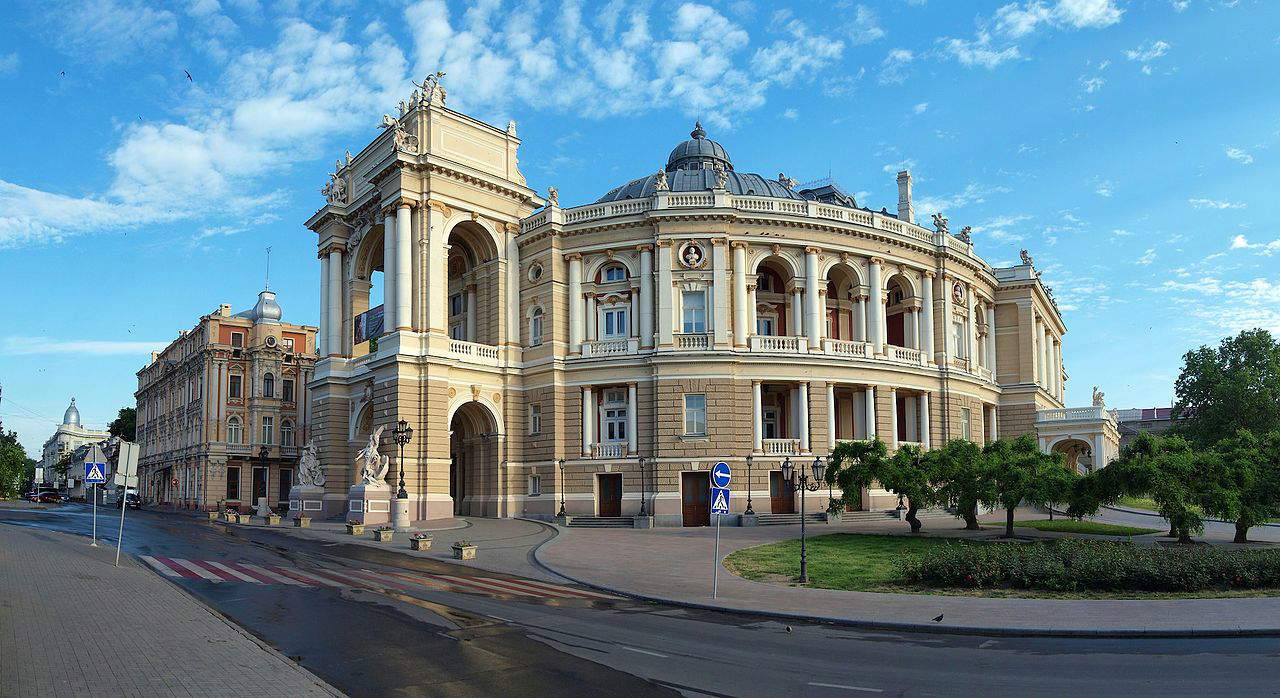Rome and Odessa have officially launched a collaboration for the protection of cultural heritage, signing a protocol of intent that marks the beginning of a common path on the cultural and institutional level. The initiative, which directly involves Rome Capital and the Ukrainian city overlooking the Black Sea, envisages the establishment of a joint working group, made up of experts designated by both cities, with the aim of protecting and safeguarding Odessa’s cultural heritage, which is now seriously threatened due to the war.
The protocol represents a further concrete step following the meeting held last July 11 between the Mayor of Rome, Roberto Gualtieri, and his counterpart from Odessa, Gennadiy Trukhanov. On that occasion the two first citizens had shared their common will to promote a path of cooperation that could strengthen intercultural dialogue between their respective communities and institutions. The document signed today is its natural continuation and initiates shared planning, with a special focus on the protection of the historical and artistic heritage of the Ukrainian city.
Odessa, a city of multicultural identity and complex history, is known for its valuable architectural heritage. This cultural heritage is also the result of Italian contributions, which since the 19th century have left a significant imprint on the urban face of the city. Indeed, Italian architects and builders contributed decisively to the definition of the eclectic style that still characterizes the city’s historic center, with buildings that mix neoclassical, Baroque, and Renaissance elements.
This heritage was internationally recognized in January 2023, when UNESCO decided to inscribe the historic center of Odessa on the World Heritage List. UNESCO’s choice came at a dramatic time for the city. The war in Ukraine, which began with the Russian invasion in February 2022, has caused extensive damage to architectural and cultural heritage in several areas of the country. Odessa, while not on the front lines like other Ukrainian cities, has suffered attacks that have compromised several historic buildings. The situation of instability and constant risk makes a structured intervention to protect cultural property particularly urgent.

It is in this context that the agreement signed between Rome and Odessa fits. The joint working group will be tasked with developing intervention strategies and conservation plans, assessing the current state of buildings of historical interest, promoting awareness and research activities, and facilitating the exchange of best practices between the two entities. The Capitoline Superintendency, which coordinates interventions on the cultural heritage of the city of Rome, will provide its technical and scientific expertise, working side by side with Ukrainian experts.
The project also has a strong symbolic value. In a period marked by tensions and destruction, the joint commitment of two cities belonging to different countries, but united by history and culture, represents an important signal of international solidarity and cooperation. It is not only a matter of defending the artistic heritage of the past, but also of contributing to the reconstruction of the civil fabric of the city of Odessa. Indeed, the protection of cultural heritage is closely linked to the preservation of collective memory and social cohesion, which are fundamental elements of any post-conflict reconstruction process. The work of experts from the two cities will not be limited to the material preservation of buildings, but will also involve local communities, promoting educational and participatory activities aimed at strengthening the link between citizens and the places of memory.
The cooperation between Rome and Odessa is part of a broader framework of international efforts to protect cultural heritage in crisis contexts. UNESCO, in recent years, has repeatedly stressed the importance of deploying specific tools to defend cultural heritage from threats arising from armed conflicts, natural disasters and climate change. In this perspective, cities can play a central role, becoming protagonists of local actions with a global impact.
The protocol just signed represents, therefore, a concrete example of cultural diplomacy, capable of transcending national boundaries and promoting a shared vision of heritage as a common good of humanity. Rome, on the strength of its experience and know-how in the field of protection, confirms its active role in the network of cities committed to safeguarding heritage, while Odessa receives fundamental support in a particularly difficult historical phase. The hope is that from this collaboration will arise not only restoration and conservation interventions, but also new forms of dialogue, exchange and mutual knowledge, capable of strengthening cultural ties between Italy and Ukraine, between the Mediterranean and the Black Sea, between the past and the future.
 |
| Rome and Odessa united to protect cultural heritage threatened by war |
Warning: the translation into English of the original Italian article was created using automatic tools. We undertake to review all articles, but we do not guarantee the total absence of inaccuracies in the translation due to the program. You can find the original by clicking on the ITA button. If you find any mistake,please contact us.